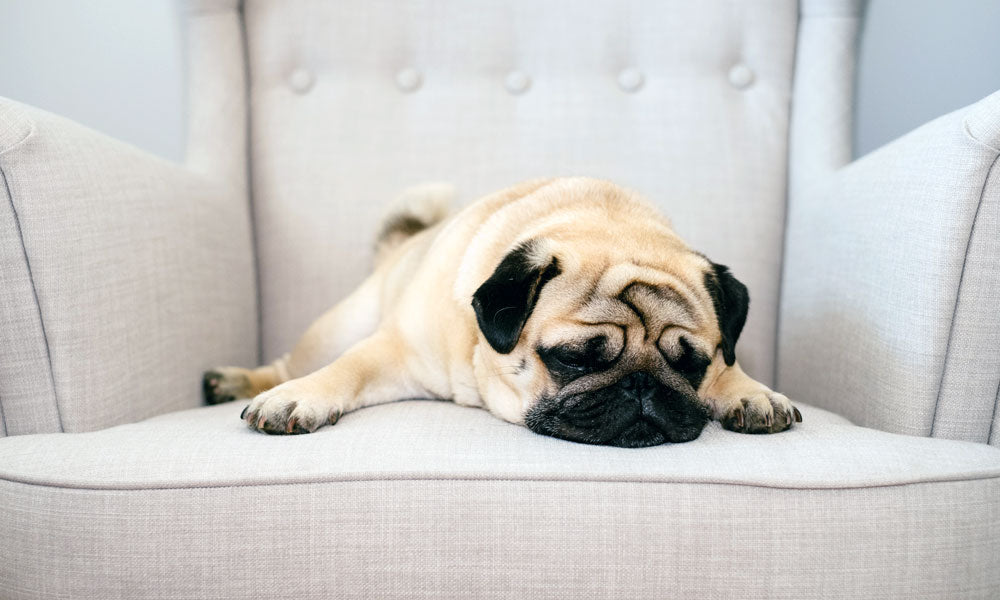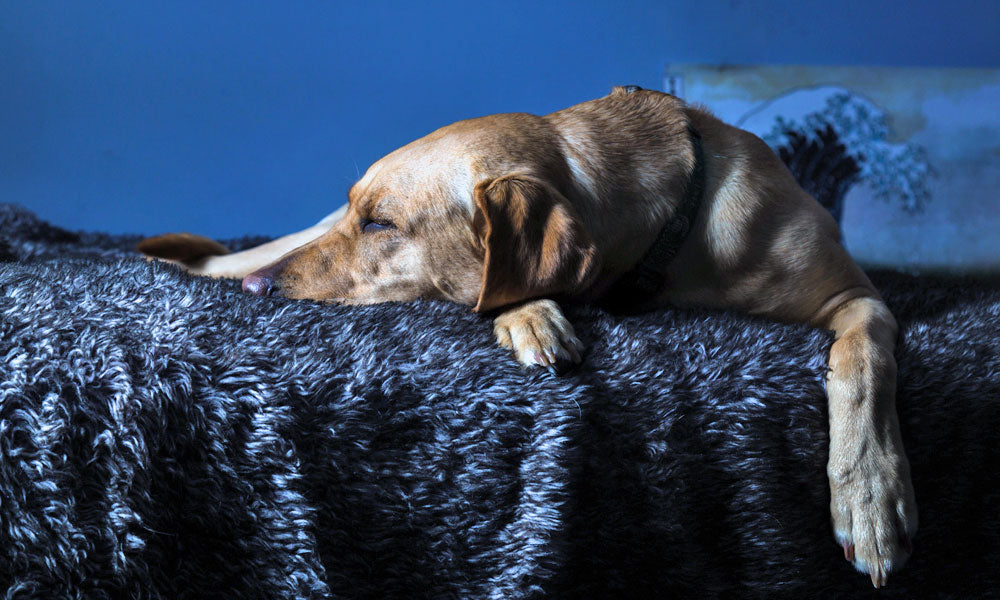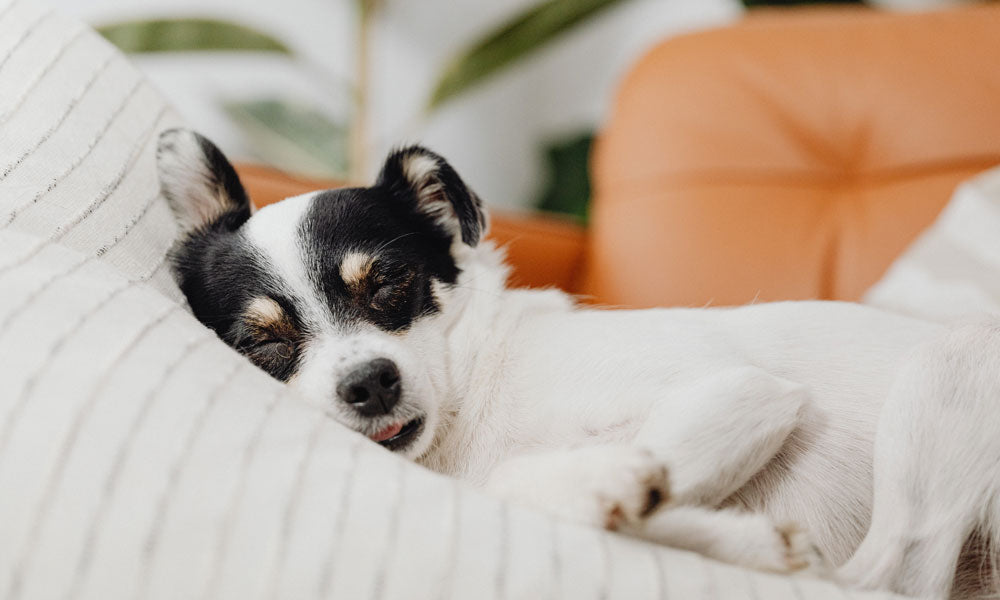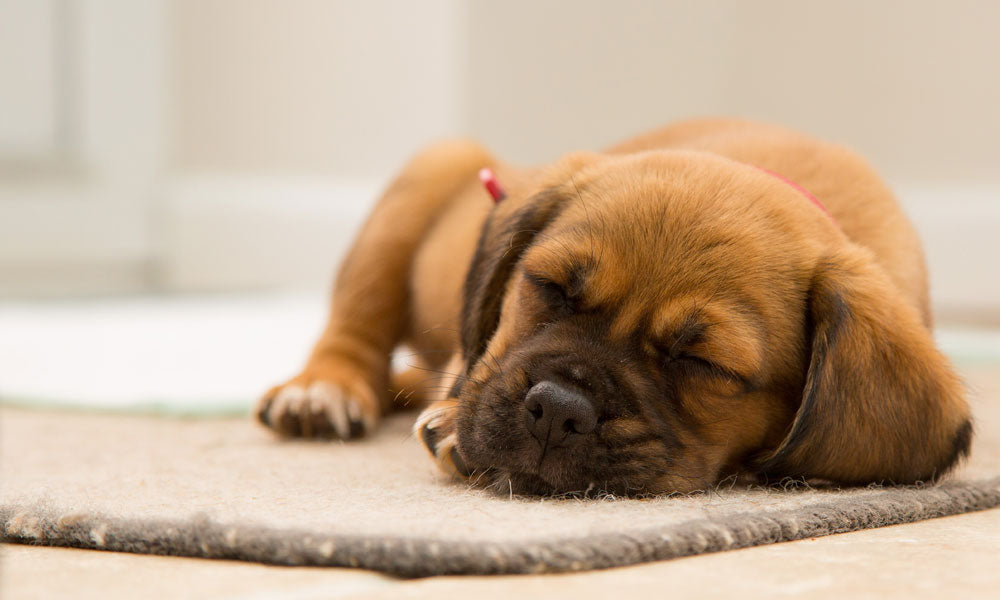
What do dogs dream about? This expert claims to know!
The mind truly boggles at some of the things academics are looking into at Universities (and how they got funding for some their projects) and this week we were amused to read that one Professor claims to have discovered exactly what our dogs are dreaming about – and that the dreams vary depending on their breed!
 Pug by freestocks.org on Pexels
Pug by freestocks.org on Pexels
Sweet dreams are made of this
Most dog owners have experienced watching their dogs dream. Their paws and faces twitch, their eyes move rapidly under their eyelids and they let out little sleep-woofs. What are they dreaming about? The traditional answer is ‘chasing rabbits’ but what about those urban hounds that have never seen a rabbit, let alone chased one? According to Professor Stanley Coren of the University of British Columbia in Canada, they might be dreaming about any number of things, based on their breed and the things they like to get up to when they are awake.
Coren, a Professor Emeritus of Psychology, says that dogs don't just dream but that they can also manipulate their dreams in the way that humans do. He suggests that most dogs undertake breed-specific activities in their dreams. For example, Doberman dogs are likely to be dreaming about protecting their owners or chasing away danger, whereas family-friendly Golden Retrievers may be dreaming of playing ball, receiving cuddles or eating snacks, i.e. the things that they really like to do when they are awake.
 Labrador by Travis Rupert on Pexels
Labrador by Travis Rupert on Pexels
Speaking about his research, Professor Coren said:
"What we've basically found is that dogs dream doggy things. So, Pointers will point at dream birds, and Dobermans will chase dream burglars. The dream pattern in dogs seems to be very similar to the dream pattern in humans."
Sadly the Professor does not state how he can see what dogs are dreaming about, his research methods or how the dreams are measured. So it is not clear if this is based on educated hypotheses or actual findings.
Something that is more easy to measure and quantify is the length and frequency of doggy dreams and Professor Coren discovered that the size of the dog affects how often they dream and how long their dreams are. Smaller dogs have more frequent, short dreams and larger dogs have less frequent, long dreams. Perhaps they sleep more deeply than alert little terriers?
 Terrier by Carolina Grabowska on Pexels
Terrier by Carolina Grabowska on Pexels
Backing Professor Coren’s research is clinical and evolutionary psychologist Dr Deirdre Barrett of the prestigious Harvard Medical School in the US. She claims that dogs dream about their everyday experiences, much like many humans do. This means there’s a good chance that they are dreaming about their owners and other people that they know as well as the things that they like to see and do in day-to-day life.
Speaking about doggy dreams, Dr Barrett said:
"Humans dream about the same things they’re interested in by day, though more visually and less logically. There’s no reason to think animals are any different.
"Since dogs are generally extremely attached to their human owners, it's likely your dog is dreaming of your face, your smell and of pleasing or annoying you."
Most animals have similar sleep cycles to humans, going through light, deep and REM sleep stages. Dreams happen during REM (Rapid Eye Movement) sleep in humans so the researchers think this is when other animals are dreaming too, and this is backed by observations of dogs twitching and barking in their sleep suggesting that this is when they are dreaming.
For us humans, REM sleep usually starts at about 90 minutes into a kip (though it sometimes happens sooner) and will last up to 15 minutes, with each of these cycles becoming longer through the night.
 Brown dog by Torsten Dettlaff on Pexels
Brown dog by Torsten Dettlaff on Pexels
The stuff of nightmares
If your dog has a happy life then it is likely that they will have happy dreams but what do you do it they appear to be having a nightmare?
According to the American Kennel Club, you should ‘let sleeping dogs lie’ because if they are reacting violently to something in their dream they may accidentally behave aggressively to whoever wakes them up as they adapt to their surroundings after being woken from a deep sleep:
"It can be tempting to wake your dog to comfort them, as you would a child, but there are some risks associated with doggy nightmares that you should share with your family. If you’ve ever been woken from a scary dream, you know that it can take a minute to remember where you are and whom you are with.
"Like some people, dogs can react aggressively toward the person waking them. This can be dangerous, especially for children. The best thing that you can do for a dog you think is having a bad dream is to wait for your dog to wake up and be there to comfort them."
Again, this is more than likely dependent on the breed of the dog that is dreaming and how aggressive they are in their waking life, but it is better to be safe than sorry.
We are very interested to know how Professor Coren claims to know what dogs are dreaming about as we could not find the specifics of his research methods in the article we found him in, but it is probably possible for us – as dog owners – to take an educated guess at what our dog may be dreaming about and whether they are happy or not. Does your dog dream? What sort of things do you think they are dreaming about? As always, let us know in the comments section below!
Main photo by Christian Domingues on Pexels
